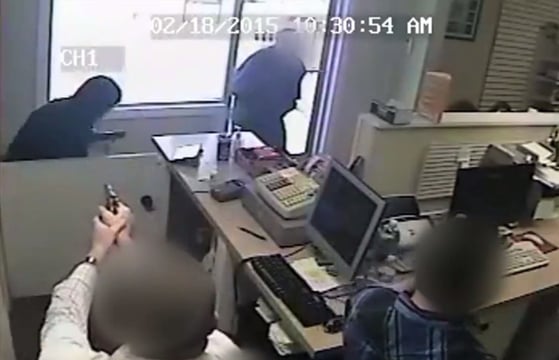You’ve just used your firearm in self-defense. Your attacker is down. What do you do now?
Most people think of a post self-defense encounter much like they would a motor vehicle accident. You remain on the scene until police and paramedics arrive, give your side of the story, and exchange information with authorities.
However, it’s important to maintain situational awareness and continue risk assessment. Each shooting incident will have lots of possible unknown “wild cards” such as the number of attackers, their condition, and their whereabouts.
And then there is also interacting with law enforcement. Even though you are the good guy, the police never assume anything when they arrive.
Case In Point: On June 13, a man breaks inside another man’s home. The homeowner shoots and kills the intruder. He is presently in custody.
The only correct answer is the one that results in you and your family being safe. If it means you have to be taken into custody, call an attorney. In many cases, firearms can be taken under civil forfeiture. Be prepared to use a different concealed carry firearm in the meantime.
Five Essential Things to Do Post-Defensive Shooting
Your obligation after you have used your firearm in self-defense is to:
- Secure your safety
- Secure the safety of your family and property
- Maintain your legal right to keep and bear arms for your own self-defense (2nd Amendment)
- Uphold your right to not self-incriminate (5th Amendment)
- Get an expedient, just, and fair trial (6th Amendment) if applicable
In order to get there from where you are:
1) Secure the firearms of fallen attackers. Doing so ensures no one else can use them.
2) Never assume because your attacker is down, he’s out of commission. No matter how wounded or unconscious he may appear, never assume.
3) Call your defense attorney at your first available opportunity. Follow his instructions to the letter.
4) Keep your firearm at the ready until law enforcement arrive. Protect yourself at all times.
5) Follow all lawful orders from law enforcement when they arrive.
Using a concealed carry weapon in defense of yourself, your loved ones, and (in most states) your property is not a crime. Don’t let pride or prejudice, stress or strain, push you into accidentally incriminating yourself or jeopardizing the lives of yourself or your loved ones.
Case In Point: Tennessee Convenience Store Shootout
We recently covered a felon who came to a store clerk’s defense in an attempted robbery. The armed robber was fatally shot when the felon used a firearm. While this, on the surface, appears to be a bit of a quagmire – Tennessee law allows the use of firearms in self-defense and the defense of others without consideration of prior crimes. Having evidence to support his case, Issac Jamal Scruggs had his firearm confiscated but remained a free man.
A big step towards helping others come to grips with this post-shooting situation is to communicate with them. Simple, calm words can help reassure them and keep them certain of your involvement.
When In Doubt – Always Secure
Once law enforcement arrive, their main duty is to secure the crime scene and begin the investigation. They will review surveillance video, conduct interviews, take fingerprints, and probably confiscate your firearm.
By the time they get there, you will have the opportunity to tell your side of things. It’s a good idea to have an attorney and concealed carry insurance for situations like this. In many cases, having an attorney present or on-hand can help expedite the post shooting situation and get you the help you need.
Securing yourself, your firearms, and your family are all great positive steps to have completed prior to law enforcement arriving and consulting with professional legal counsel.














